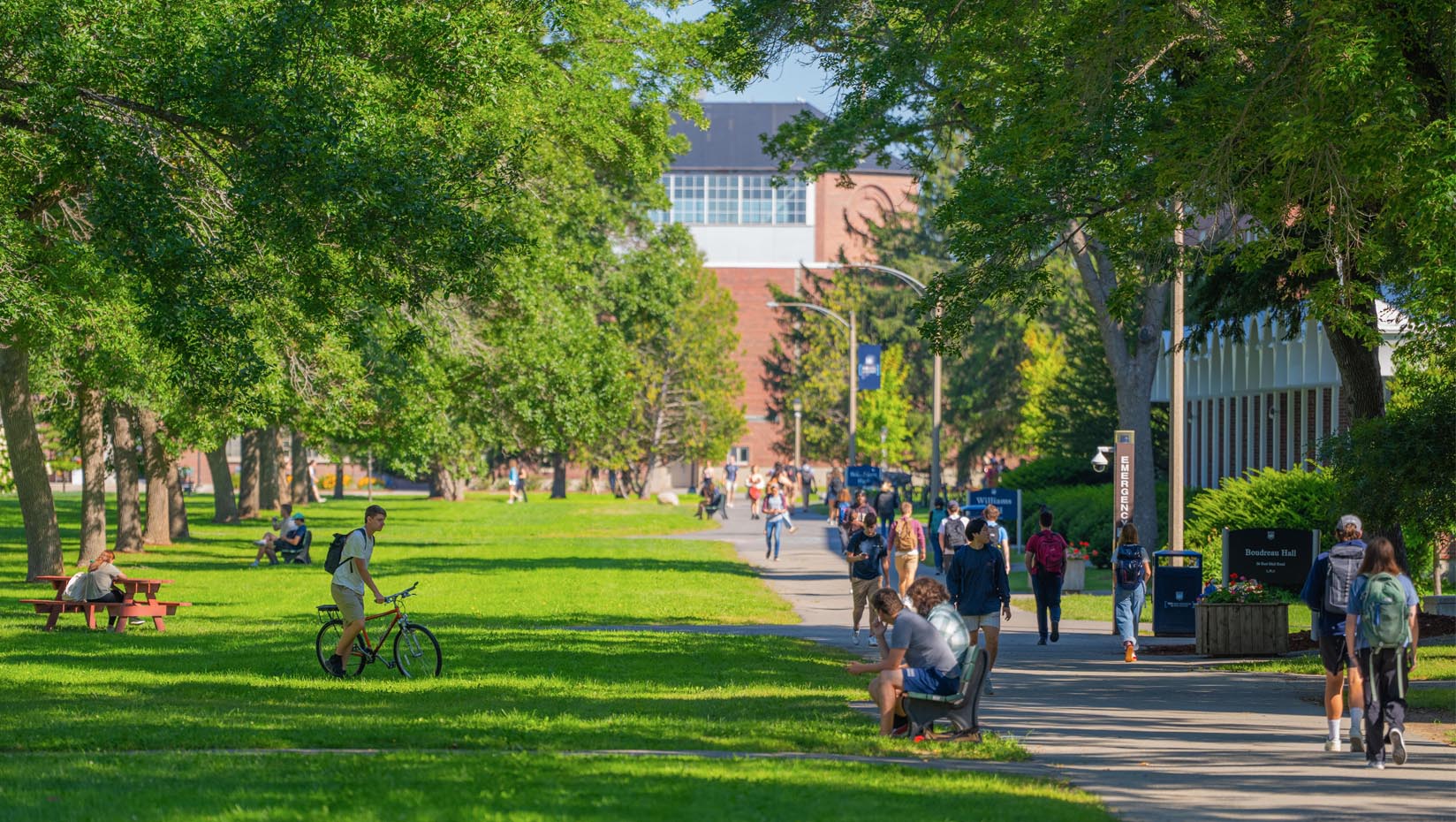
UMaine achieves record retention of students from first to second year
Retention for UMaine Machias jumped more than 10 percentage points and is the highest in at least a decade
Extra efforts in recent years to help first-year students adjust to college life and succeed academically and socially are paying off for the University of Maine as the first-to-second-year retention rate this fall is the highest in the flagship’s history.
Retention of students transitioning from their first to second year of college this fall at UMaine’s regional campus, the University of Maine at Machias, was also the highest in at least a decade.
The retention rate for UMaine’s fall 2023 cohort of first-time, full-time students — those who have never attended an institution of higher education and returned for a second year of study — reached 83.4%. That is up 6.1 percentage points from the number of students from the fall 2022 cohort who returned in 2023.
At UMaine Machias, 81.4% of first-time, full-time students who began their studies fall 2023 returned for their second year, a 13.5-percentage-point-jump from the previous year.
“We are working harder than ever to ensure our students excel at every stage of their college career through graduation. I’m thrilled to witness an increase in retention this semester and am grateful for our exceptional faculty and staff who made it possible,” said President Joan Ferrini-Mundy. “Now more than ever, UMaine and UMaine Machias play a critical role in improving the lives of Mainers and the statewide economy.”
A university’s retention rate is an important measure of how well it supports students and helps them succeed as they pursue their personal, educational and professional goals. The milestone comes as the university implements more support services and experiential learning opportunities that help students achieve long-term success and prepare to join the workforce.
“These retention gains are a testament to our collaborative efforts across the university, where we prioritize student success and well-being through robust proactive support services and impactful experiential and research learning opportunities,” said John Volin, executive vice president of academic affairs and provost. “By engaging students in hands-on learning from day one, we’re ensuring they not only persevere, but thrive.”
The first year of higher education can be a daunting period of transition for many students, academically and socially. To improve new and current learners’ experiences, UMaine and UMaine Machias have implemented more support for navigating campus life.
Both now offer more peer mentoring and other tutoring services for hundreds of classes and a more robust early alert system to identify at-risk students. These services supported nearly 40% of the first-year students last year.
The university has also launched more online tools to quickly assist students and minimize the stresses related to new and unfamiliar learning environments. Those tools include a variety of user-friendly online resources that can answer questions about financial aid, academic advising and community resources for food, clothing and transportation. Among them is the Bananas T. Bear artificial intelligence chatbot, through which more than 7,000 messages were sent during the 2023-24 academic year to check in on students and help meet their various needs.
“It is our mission as a student-centered university to ensure we are meeting the needs of our students from day one,” said UMaine Machias Dean and Campus Director Megan Walsh. Like Ferrini-Mundy, Walsh credited the campus’ faculty and staff for helping students persist and achieve their goals.
Following the implementation of new support services, UMaine and UMaine Machias witnessed improved retention and grades among students whose situational circumstances have historically posed barriers to success in higher education, including those who are first-generation or from rural, low-income or historically underserved communities. Retention among these students grew approximately 10 percentage points.
“We are committed to providing high quality support for all students while offering additional resources and opportunities to address their unique needs, ensuring every Black Bear has the tools and support to thrive during their time here at the University of Maine and University of Maine at Machias,” said Scott Marzilli, associate provost for student success and innovation.
UMaine and UMaine Machias also continue to expand the roster of experiences that make learning more experiential and empowering, such as a wider variety of co-curricular internships (Pathways to Careers) and Research Learning Experiences (RLEs). These new academic offerings and support services are made possible through UMS TRANSFORMS, a multi-year initiative funded by historic investment from the Harold Alfond Foundation that is focused on four key areas — including student success and retention — to better position the University of Maine System to meet the state’s economic needs. It’s supported by a $320 million commitment from the Harold Alfond Foundation.
Many of these efforts stem from the long-term Strategic Framework for Enrollment Management Recruitment and Retention Action Plan launched in spring 2023. It outlines strategies for growing enrollment; fostering a sense of belonging and identity; and improving perseverance and student success.
In addition to achieving the highest ever retention rate for students transitioning from their first year to their second, UMaine also experienced its highest return rate in history at 82.7%. The fall-to-fall return rate reflects all degree and certificate-seeking undergraduate students enrolled at UMaine in fall 2023 who came back to continue their studies this fall, except those who completed their degree or credential within the intervening year.
UMaine and UMaine Machias are also welcoming more new learners than in previous years. The fall 2024 cohort at UMaine is 11% larger than its fall 2023 counterpart. At UMaine Machias, the first-year class this fall was 25% larger than one year ago.
Contact: Marcus Wolf, 207.581.3721; marcus.wolf@maine.edu
